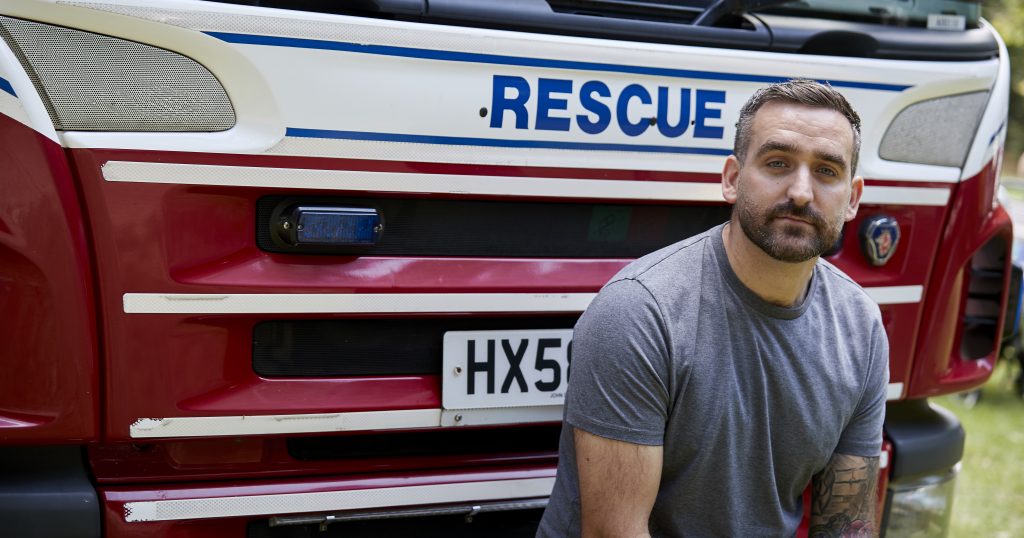Please note: the following story contains content that may be upsetting to some readers.
Having been a firefighter for ten years, Paul Weller never expected a football match to be the situation from which he would sustain a life-changing injury.
Falling awkwardly during a game in 2012, Paul broke his leg in six places and ruptured his Achilles tendon. Having undergone 11 operations to fix his foot, he was told he would never be able to run or play football again – and would also need to leave his role as a firefighter. On top of this, he was also coping with the loss of his two best friends, who had both died in separate accidents.
“It was a really difficult time for me,” says Paul, who went on to become a Dispatch Team Leader for the ambulance service. “I bottled things up and everything got on top of me.”
Paul’s old crew manager suggested contacting us to see how we could help. Having reached out for support, he twice attended a residential programme of rehabilitation at Jubilee House, our Penrith centre.
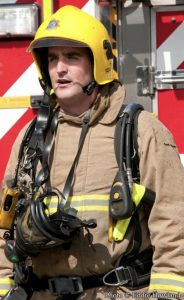
Shortly after these initial visits, Paul was told he would have to leave his role as a firefighter at Hayward’s Heath station, West Sussex, where he had spent the best part of a decade, due to his injury.
“That was probably the hardest part, and all I could focus on were the negatives,” he says. “I was struggling with the last images I had of my friends who had died and I couldn’t face going back to the station to see colleagues because being around the lads reminded me too much of what I was giving up. I also used to play football at quite a decent standard and losing that was a big thing. It felt like I was saying goodbye to a lot of things all at once.”
Despite these mental health challenges mounting, Paul says he didn’t open up to his friends and family at the time, a decision he now regrets.
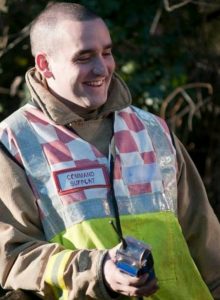
“I didn’t like talking to people about my problems, and just thought I could cope,” he explains.
“At the time I didn’t see any warning signs, it took for me to be on a cliff edge for me to realise that I needed help. Looking back though, I’d lost all kinds of relationships with family and friends, and I’d just isolated myself completely.”
He adds: “One day I sent text messages out to people saying I didn’t want to be here anymore and to say goodbye to my daughter… and I was stood on the edge of Beachy Head for a couple of hours. There’s a Chaplain service that actually goes around that area trying to stop people harming themselves, because it’s quite a high-risk area, and they luckily saw me there.
“They were talking to me, before a police officer came as well, and it was him talking to me about my daughter and reminding me that I needed to see her grow up that made me suddenly think, ‘oh my God, what am I doing here?’
“I didn’t like talking to people about my problems, and just thought I could cope. I always thought being emotional was a weakness, but it’s not. It shows strength of character.”
Paul Weller
“I’ve always said that she’s the reason why I’m still here. She’s the reason why I left the cliff edge. Then the charity is the reason why I got through it from then on.”
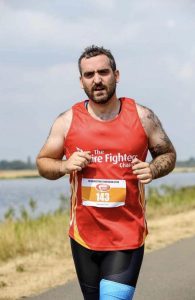
Paul consequently reached out to us again and attended further sessions at Marine Court, our centre in Littlehampton, where he started talking to a psychological therapist.
“I always thought talking about problems and being emotional was a weakness, but it’s not,” he says. “It shows strength of character. They explained how I was living with the impact of all these events – the injury, my friends’ deaths, not being able to go back to work – and gave me ways to cope with the long-term management of these traumas.”
Once he started talking, Paul surprised himself with how easy he found it to talk to other beneficiaries, even though they were practically strangers: “I’d been missing being a firefighter so much, but during my stays at Jubilee House and Marine Court, I was part of the fire community again.”
Paul also managed to defy the odds with his rehabilitation, and through the physical support he received, managed to not only learn to walk again, but also ran a half marathon as part of our My75Miles challenge in 2019.
“I can’t speak highly enough of the people at Fire Fighters Charity,” he says. “I’d always given a regular donation in my salary when I was a firefighter, but they gave me so much, I felt I had to do more. Along with a friend and my partner, we started our own events company for the blue light services, organising charity events to raise money, including for Fire Fighters Charity.”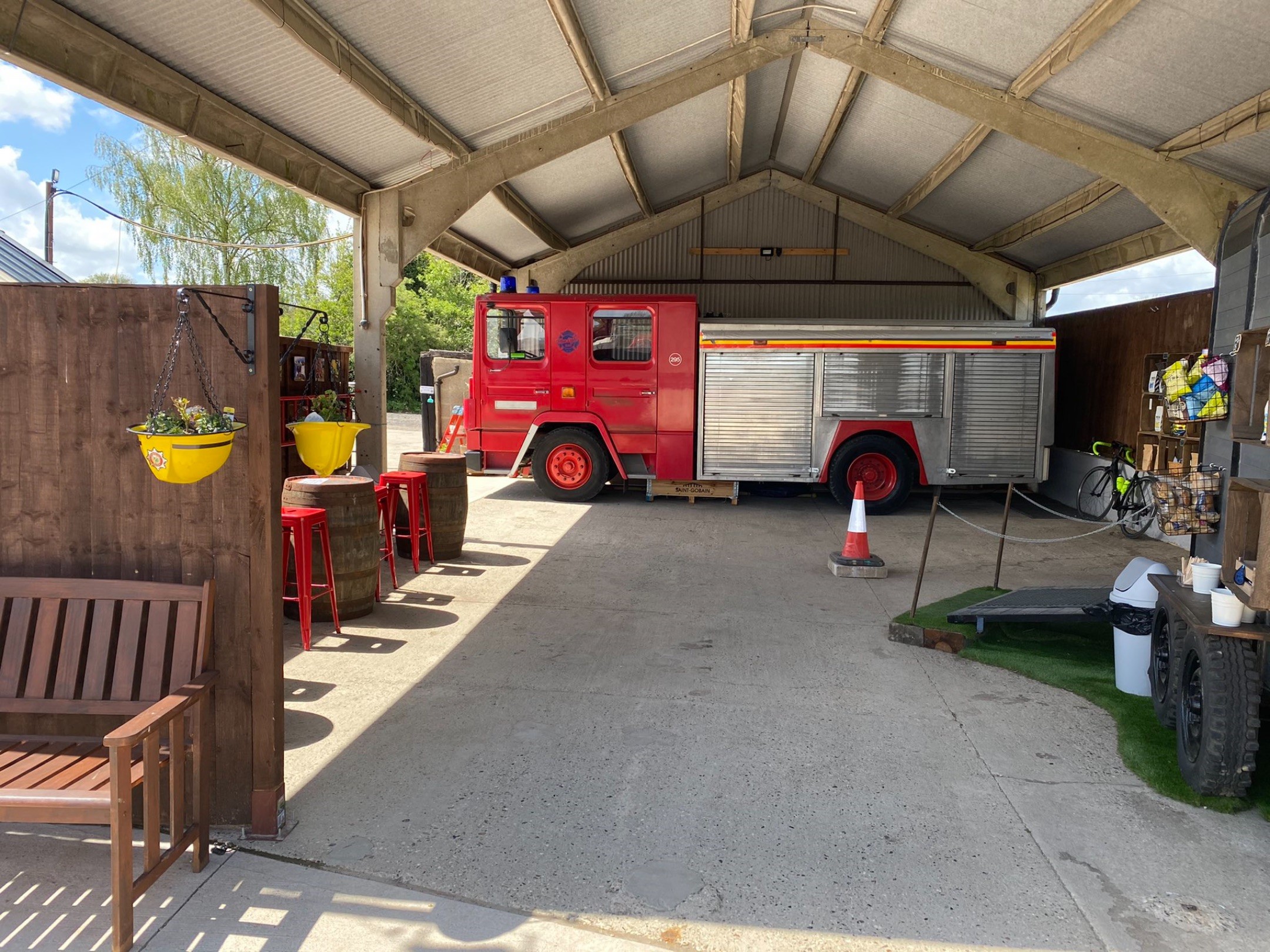
Paul and his partner Roxie Carpenter, a serving police officer, renovated an old fire engine and opened it up as a mobile bar, just as the pandemic hit, and continued the business for the following three years. It proved so popular, it even appeared on Channel 4 show George Clarke’s Amazing Spaces.
True to their word, support for the emergency services ran throughout the business. They sold firefighter-owned Frontline Coffee and had a pay-it-forward scheme for people to buy a hot drink for keyworkers. They also pledged 25% of the annual profits from the business to nominated emergency service charities, including Fire Fighters Charity.
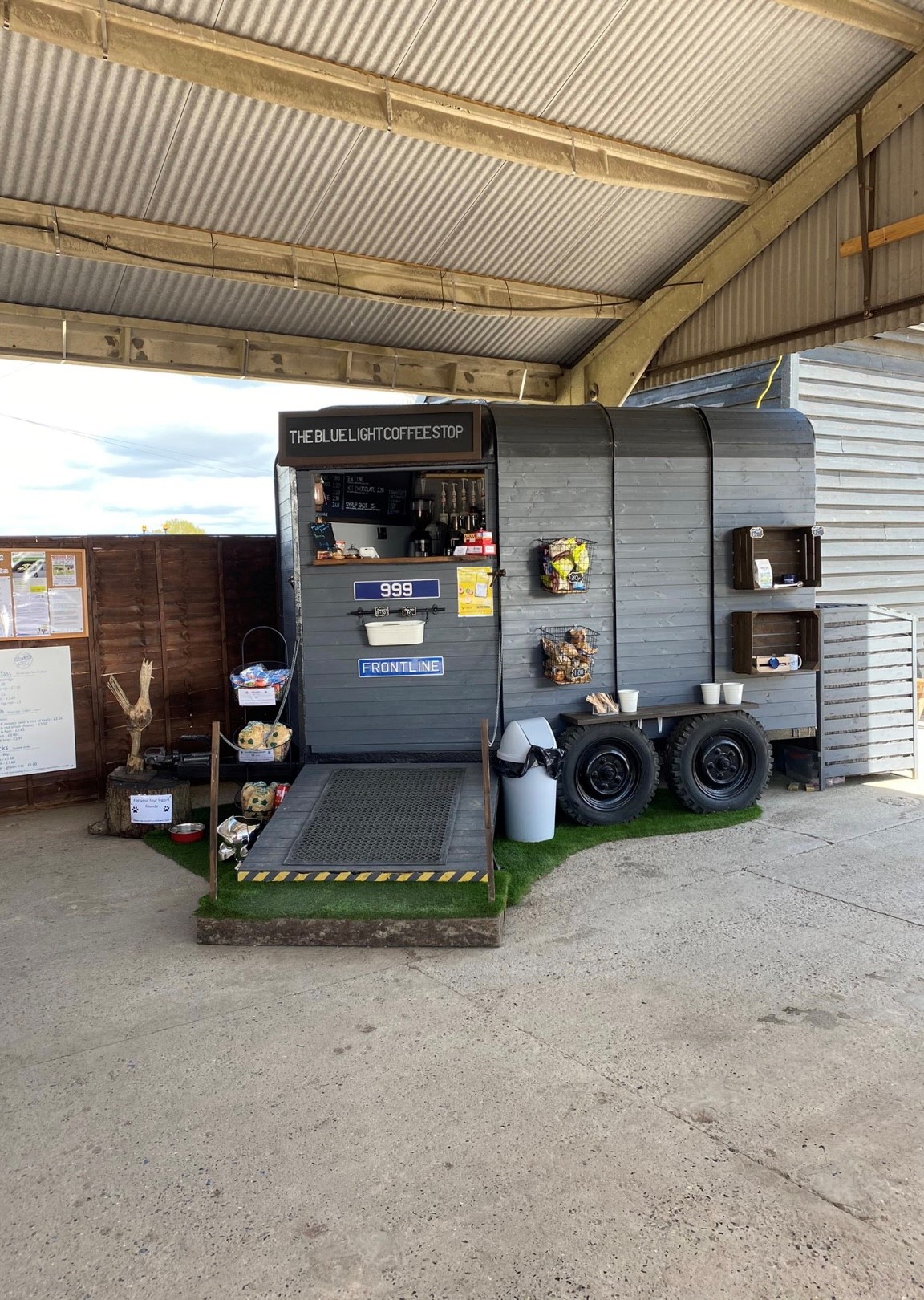
Paul now regularly speaks to firefighters and the public about his injury and time with the charity, to inspire others to speak out about their experiences.
“It means I still feel a part of the fire community and can encourage others to seek help if they need it,” he says. “In the fire brigade environment, people are often worried how it looks to admit what they see as weaknesses. But with events like Grenfell and the attention on mental health, people are opening up a lot more. We need to do that. If I could go back in time and talk to myself back then, I would tell myself to ask for help sooner. Everyone is struggling, so we all have to admit when we need help. I’m so glad I did.”
He is also supporting our 24/7 crisis line, having reached the point of crisis himself.
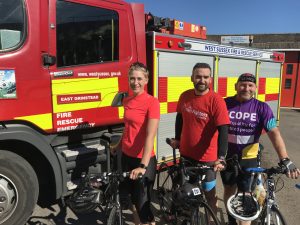
“I think this crisis line is sadly very needed, more so now maybe than when I was going through what I was,” says Paul.
“If people feel like there’s somewhere they can call that’s completely confidential – nobody knows they’ve called – and they can be completely honest over the phone, then that’s amazingly helpful.
“I think if that had been available when I was going through what I was going through then I would have used it. I have used similar things since, and they’re so helpful.”

